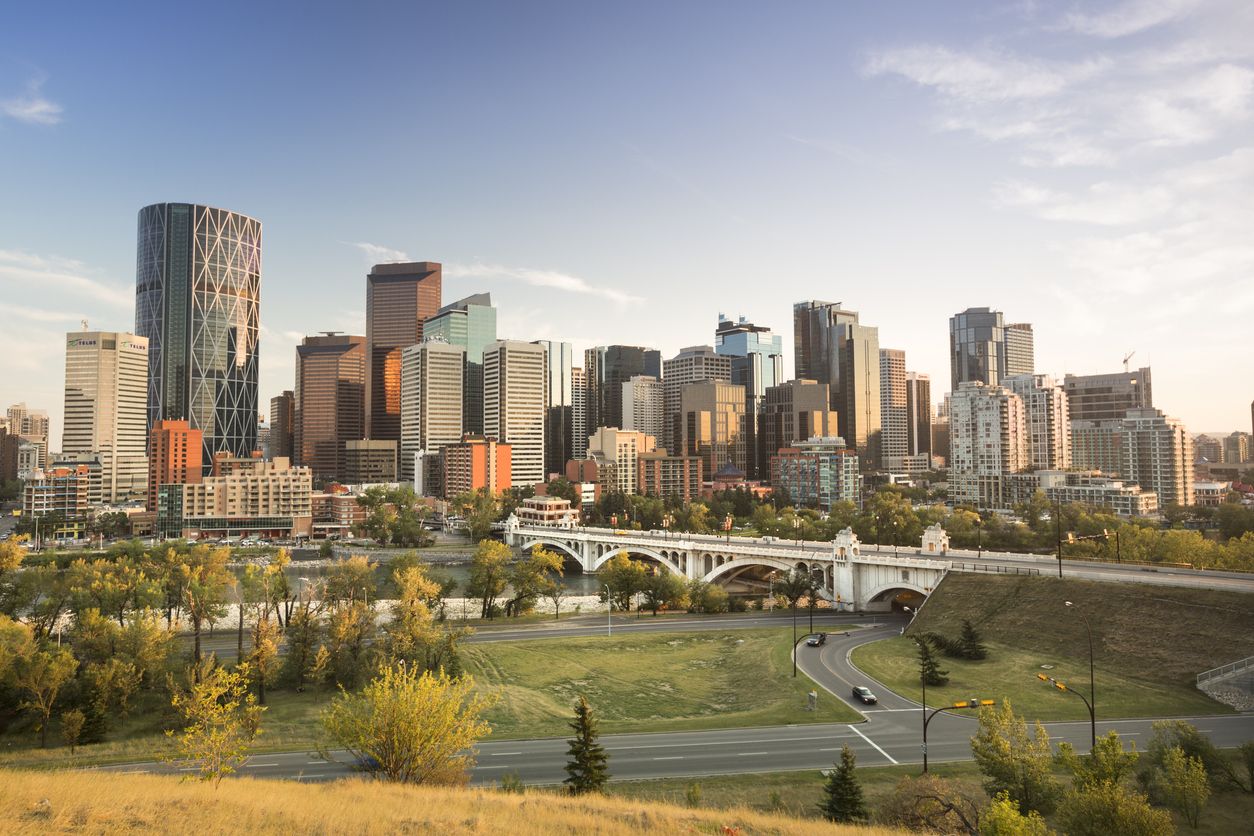AI for the Resilient City

Around the world, resiliency planning is finding its way to the top of municipalities’ agendas. The need to prepare for climate-related hazards — from droughts to fires, heat waves to rising global temperatures — has never been more urgent.
That’s why Evergreen has developed AI for the Resilient City. The data visualization and analytics tool — funded through a grant from Microsoft’s AI for Earth program and supported by RBC — aims to help municipalities across Canada plan for and mitigate the impacts of climate change, giving power to cities and regions through data and technology.
Launched in 2020, the pilot phase in the City of Calgary examined the Urban Heat Index (UHI). Extreme heat in cities is a mounting problem, leading to increased energy consumption, air pollutants, greenhouse gases and very importantly impacts to human health and comfort. The effects of extreme heat have a varied impact on communities, neighbourhoods and individual’s livelihood with the most vulnerable being the most effected. The tool has created a dynamic integrated view of a wide range of data, allowing municipal stakeholders see which areas of the city are most impacted by UHI and use this information to plan for a more climate resilient future.
Read more about the impact AI for the Resilient City has had on decision and policy making with the City of Calgary as it takes action on climate change.
Through funding from RBC Foundation in support of RBC Tech for Nature, Evergreen, in partnership with Toronto and a local conservation authority, has brought this dynamic climate solution to Ontario to provide key decision and policy-maker insights to the entirety of the Peel Region, covering the Cities of Mississauga, Brampton and Town of Caledon (and everything in between).

The completion of the second phase of AI for the Resilient City will enable a local conservation authority to create a baseline level of UHI for the Peel Region that will help demonstrate the relationship with infrastructure and population vulnerability in the area. Understanding the patterns of the UHI effect will allow city planners and other decision makers to better understand the vulnerable neighbourhoods that need interventions and evaluate potential development scenarios to create or mitigate UHI.
The tool, built on the Microsoft Azure cloud computing service, used with Gramener Inc.’s, Gramex system, has been designed to scale geographically and technically across Canada. Municipalities will be able to leverage the solutions technology to address a host of climate-related hazards, from flooding to earthquakes. It will help visualize pressing questions: What did the City look live five year ago? What could it look like in 15, if the status quo is maintained? What impact would various climate interventions have? How can data and decisions today change how we view our community tomorrow?
The tool’s many features allow for in-depth prediction and planning:

- Scenario Modeling View, pictured above, allows users to simulate a view of the future by modifying various urban features or climate variables. It also offers users the ability to input their own datasets to understand how changes will effect the overall environment and communities.
- Story Mode allows users to see data insights as easily digestible stories, designed by Gramener and City staff.
- Explore Mode provides a granular view of the data narrowing into the building(s) level.
- 2D/3D Building Footprints View allows users to see every building in the City.
- Satellite Image View creates a satellite view of points of interest on the ground.
- Compare View allows users to compare correlating variables at the same time, or the same variables at different point in time.
The AI for the Resilient City Program is currently on the enhancement stage of Phase 2+, integrating an advanced scenario mode allowing users to input variable changes to existing in-tool metrics and understanding how these changes (for example, building count in a set area) will affect the environment, community and extreme heat outcomes, before a development permit is ever approved or a shovel ever hits the ground.
AI for the Resilient City is made possible by AI for Earth, a pillar of the AI for Good, Microsoft’s commitment to empower those working around the world to solve humanitarian issues and create a more sustainable and accessible world. The tool has been created in partnership with data science and AI company Gramener. It will be available to municipalities across Canada to plan for and mitigate the impact of climate change in their communities.
AI for the Resilient City is funded in part by the RBC Foundation through RBC Tech for Nature to help scale this program.
Do you want to be our next city? Find out how your city can join the next phase to help with heat adaptation and mitigation strategies. For more information and a demonstration contact Joshua Welsh at jwelsh@evergreen.ca.
Supported by:

You can learn more about the project in the video below:
